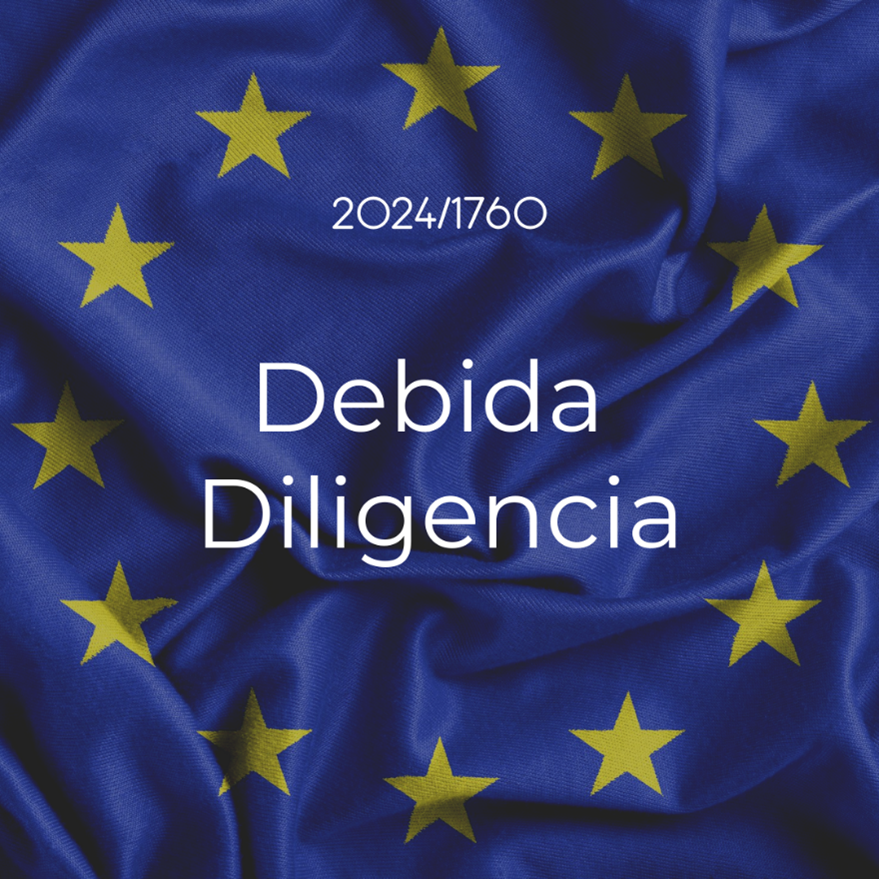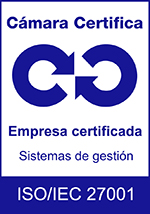With the entry into force of the EURD 2024/1760 Directive in June this year, large companies operating in Europe are already facing a new regulatory framework that imposes strict human rights and environmental due diligence obligations. This directive reinforces the EU’s commitment to sustainability and fundamental rights, requiring companies not only to reduce their environmental impact, but also to mitigate adverse human rights impacts, both in their operations and in their complex international supply chains.
This regulation, based on the UN Guiding Principles on Business and Human Rights, becomes a tool to achieve the ambitious goals of the European Green Pact, which aims for climate neutrality by 2050. According to the directive, companies will have to integrate sustainability policies at all levels, ensuring that business decisions consider not only profitability, but also social and environmental well-being.
Large companies in the spotlight
The directive has a clear focus on large companies, particularly those with more than 1,000 employees and generating an annual turnover of more than 450 million euros. These companies will have to implement a comprehensive six-step due diligence process:
– Integrating due diligence into policies and management systems: The first step involves developing clear company policies that address due diligence obligations and creating management systems to ensure their implementation. Companies should define codes of conduct and internal standards to ensure that their operations and those of their partners comply with sustainability and human rights requirements.
– Identification and assessment of adverse effects: In this step, companies should identify and assess potential adverse impacts related to their operations and supply chain. This analysis includes not only the company’s own activities, but also those of its suppliers and subcontractors, locally and internationally. Tools such as audits or sectoral risk assessments help to detect potential human rights violations or environmental risks.
– Prevention, interruption or minimisation of adverse effects: Once risks have been identified, companies must implement measures to prevent or mitigate those impacts. This may include modifying contracts with suppliers, adopting new cleaner technologies or improving working conditions. Minimising adverse effects should be an ongoing priority, especially in sectors such as manufacturing or the production of sensitive materials.
– Monitoring and evaluating the effectiveness of measures: Companies should not only implement preventive measures, but also monitor their effectiveness on a regular basis. This involves tracking key performance indicators, conducting internal audits and reviewing processes to adapt to new regulations or circumstances. This approach allows organisations to adjust their strategies to maximise their positive impact and minimise risks.
– Transparent communication: Transparency is essential throughout the due diligence process. Companies should inform their stakeholders (customers, investors, employees, and the general public) about the measures they have taken and the results of these actions. Public sustainability reporting, describing due diligence policies and practices, is a key tool for building trust and credibility.
– Remediation: Where adverse impacts cannot be completely avoided, companies should provide effective solutions to remedy them. This includes accessible grievance mechanisms for affected people, such as employees or communities, to report problems. Companies need to be prepared to respond quickly and fairly, offering compensation or remedial action where necessary.
This means that multinationals operating in Europe, even if they are based outside the Union, must comply with the requirements if their turnover on the continent is significant.
Medium-large companies with more than 250 employees and a turnover between EUR 40 and 450 million, although smaller in size, also fall under the umbrella of the Directive, but with a gradual implementation. It is expected that by 2027, these companies will be aligned with the due diligence requirements, and from that date onwards they will have to comply with all stages of the sustainability process.
SMES
On the other hand, 99.8% of the European business fabric is made up of SMEs, which employ approximately 67% of the workforce in the European Union. Many of these small and medium-sized enterprises operate as suppliers or business partners of large corporations. The Directive obliges large companies to apply the six stages of due diligence not only on their own operations, but also on those of their suppliers and business partners. This includes thousands of SMEs involved in transnational supply chains or working in critical sectors such as manufacturing, technology, transport, among others.
Suppliers will be under scrutiny to ensure that there are no human rights violations, such as child labour, exploitative labour or unhealthy conditions, and that they respect environmental standards, such as reducing CO2 emissions or proper waste management.
SME support mechanisms
Aware of the challenges that this regulation may pose for SMEs, the Directive foresees specific support mechanisms to ensure that these companies can comply with the new requirements without jeopardising their economic viability.
- Financial support:
- Low-interest loans or grants: Large companies could partially finance the changes that SMEs need to implement, such as the adoption of cleaner technology or the implementation of certified environmental management systems (ISO 14001, for example).
- Guarantees of continuous supply: To compensate for adaptation costs, large companies could offer long-term contracts that ensure continuity of business relationships, allowing SMEs to plan investments with greater certainty.
- Training and capacity building support:
- Training in sustainability and human rights: Large companies should share knowledge and offer training to their suppliers in areas such as identifying labour and environmental risks, efficient resource management or implementing diversity and inclusion policies.
- Access to technology and management systems: Many SMEs do not have the resources to develop internal sustainability management systems. Large companies can provide them with access to technologies and tools that enable them to comply with regulatory requirements. For example, digital platforms to monitor the carbon footprint of their operations or energy efficiency in their production processes.
Dates
– Deadline for transposition (within 2 years after publication in the OJEU):
- EU Member States have until July 2026 to transpose the Directive into national law. This means that during this period, each country will have to transpose the Directive into its domestic legal framework and put in place the necessary measures for compliance.
– Start of application for large companies:
- Due diligence obligations are expected to start to apply from July 2026 for large companies that meet the Directive’s thresholds, i.e. those with more than 500 employees and a turnover of more than EUR 150 million globally.
– Gradual implementation for other companies:
- For smaller companies (with more than 250 employees and a turnover of more than EUR 40 million), the obligations of the Directive would enter into force from 2027, after an adaptation period.
– Finalisation of implementation and review:
- Between 2028 and 2030, EU institutions are expected to conduct reviews of the Directive to assess its implementation and possible improvements. This period will be key to adjusting regulations to changes in the global economy, environmental regulations and human rights.
– Dates related to climate neutrality:
- The Directive is aligned with broader European targets such as climate neutrality by 2050 and a 55% reduction in greenhouse gas emissions by 2030, reflecting the importance of progressive compliance with sustainable regulations in all industrial sectors.
At Laragon/ALL4, we are committed to providing our clients with the tools and knowledge necessary to comply with these standards and maximise their positive ESG and EHS impact. Our comprehensive approach helps companies navigate this new regulatory landscape, promoting responsible practices that strengthen the sustainability of their value chains.



